Senior Iranian police official killed in car crash
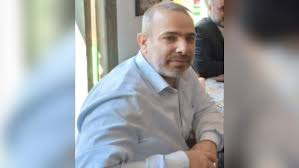
Jalal Sherafat, a senior Iranian police commander, was killed in a car crash, Iranian media reported on Saturday.

Jalal Sherafat, a senior Iranian police commander, was killed in a car crash, Iranian media reported on Saturday.
"A vehicle belonging to the Intelligence Organization of Iran's Law Enforcement Command overturned for unknown reasons while on duty on the Ardestan to Na'ein road, near the Noor Complex," Iranian news agency Rokna reported.
"In this incident, General Jalal Sharafat was martyred due to the severity of his injuries and Major Seyyed Mohsen Mirghasemi was injured," the report added.
Sherafat previously served as the head of the Iranian Anti-Narcotics Police's Cyberspace Center at least until 2019, but it is not clear what his position was at the time of his death.
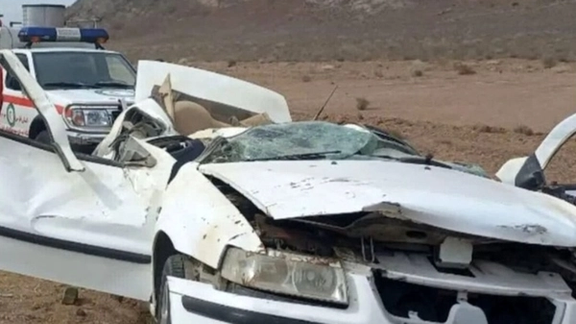
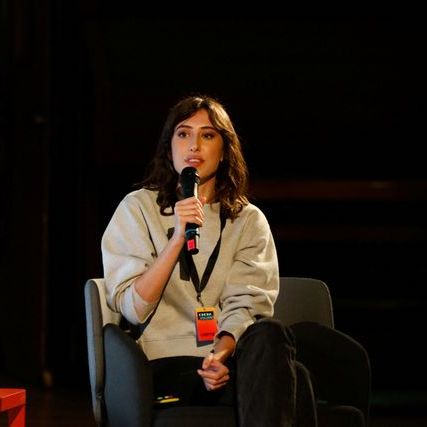
Washington on Sunday urged Iran to release an Italian journalist detained in Tehran in a case likely related to Italy's arrest of an Iranian businessman on terrorism charges at the behest of the United States.
The US State Department called for the immediate and unconditional release of Cecilia Sala, 29, and others detained without just cause.
"Unfortunately, the Iranian regime continues to unjustly detain citizens of many countries, often to use them as political leverage," a State Department spokesperson told La Repubblica.
Sala, a newspaper journalist and podcaster, was arrested on December 19 despite working there with government-issued press credentials.
"There is no justification, and they should be released immediately," the spokesperson said, adding that journalists perform critical work to inform the public and must be protected.
Sala’s detention in Tehran may be linked to the arrest of a Swiss-Iranian businessman at Malpensa Airport three days earlier on a US warrant for allegedly violating sanctions on electronic exports, La Repubblica further added citing his lawyer.
Mohammad Abedini Najafabadi, 38, faces terror-related charges for a deadly drone strike on a US military base in Jordan linked to Iran which killed three US soldiers.
He is currently held at Milan’s Opera Prison and faces potential extradition to the US.
On Sunday, a sit-in in Turin urged the Italian government to "do the impossible" to secure Sala's release and return her to Italy. Around fifty people, including city councilors and representatives from political and activist organizations, participated in the rally.
Italian Foreign Minister Antonio Tajani said on Saturday that Sala is in good health and is being held alone in a cell in Evin Prison. Tajani called for media discretion over the case and confirmed that Sala has spoken to her parents twice by phone. Italian Ambassador to Tehran Paola Amadei has also visited her in prison.
"We know that the Italian government has asked us not to demonstrate, but we disobey, we demonstrate," said Italian politician Igor Boni, a member of the organization Europa Radicale, during the Turin rally on Sunday.
"For a week, a journalist from a democratic country has been arrested without charge in a dictatorial country like Iran. The last thing to do is remain silent."
The Italian government has pledged to work discreetly to secure Sala's release as international pressure grows on Iran over what some rights groups describe as a practice of detaining foreign nationals as political bargaining chips.

Babak Zanjani, an Iranian oil tycoon convicted of embezzling billions of dollars in oil revenues and sentenced to death, has apparently been released from prison according to social media posts by his lawyer.
Rasoul Kouhpayehzadeh posted a photo of Zanjani on Instagram with the caption, "In the name of God, the Merciful, the Compassionate," but provided no further details.
The Instagram story, shared around midnight Saturday, has been covered by Iranian media outlets which sought in vain for details on how Zanjani won his release.
His lawyer had said in an earlier post that Zanjani had paid his debts and can legally be freed, without providing details.
"As the assets were returned to the country and the debt was fully settled, the Supreme Leader, upon the request of the Tehran Province Justice Department and the approval of the Chief Justice, granted clemency to my client, reducing their sentence to 20 years' imprisonment, his lawyer had said in April.
Zanjani was convicted in 2016 of misappropriating funds during sanctions-era oil sales, a case that symbolized corruption and mismanagement in Iran's oil sector.
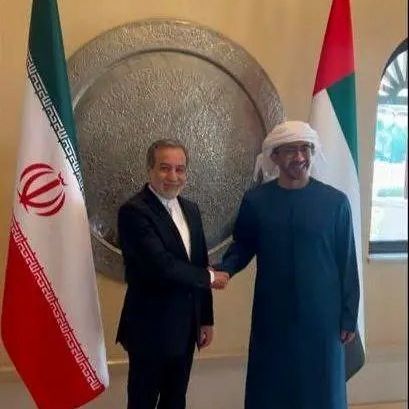
Iran's Foreign Minister Abbas Araghchi met UAE Foreign Minister Sheikh Abdullah bin Zayed on Sunday during a visit to Dubai.
Araghchi's visit to Dubai took place on his way back from China.
As part of his trip to China, Araghchi met his Chinese counterpart Wang Yi in Beijing on Saturday.
The two top diplomats reviewed progress in implementing the comprehensive strategic partnership between Iran and China and discussed the latest developments in the region, according to state-media.
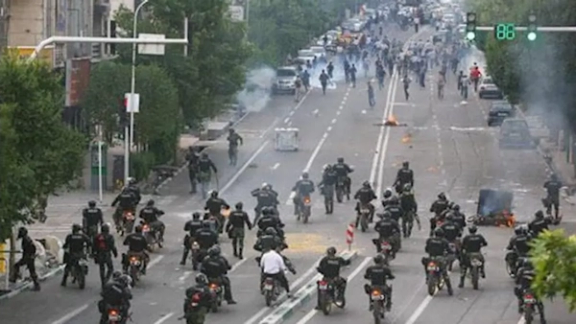
Iran’s Islamic Revolutionary Guard Corps (IRGC) issued a statement on the anniversary of the December 30th pro-government protests, urging citizens to unite in the face of foreign threats while the country edges towards further unrest.
Referring to Iran's foreign archenemies, the US and Israel, the statement specifically laid the blame of the unrest at their door.
“The epic of December 30th was a monumental, faithful, and national movement that stunned the malicious network of American and Zionist conspirators, proving the deep insight and resilience of the Iranian people," it said.
It went on, further detailing how it blames the country's domestic chaos on foreign interference. "With utmost intelligence and resilience, they [the Iranian nation] will navigate through the challenges and difficulties stemming from the enemy’s think tanks, manifesting in threats, sanctions, economic warfare, cognitive warfare, the injection of despair and hopelessness among the people, attempts to portray the system as ineffective, and fear-mongering within society," the statement said.
This year’s statement to commemorate the event of 2009, comes amid rising threats of protest as the country battles its worst economic crisis since the founding of the Islamic Republic and critical shortages of energy.
The December 30th rallies, referred to as the "Dey 9" by Iranian authorities, were organized to counter mass anti-government demonstrations following the disputed presidential election earlier that year.
Protests erupted over accusations of electoral fraud that ensured Mahmoud Ahmadinejad's controversial victory. The movement reached a critical point during the Ashura religious observances, where protesters were accused by the government of disrespecting sacred traditions—an allegation authorities used to justify a violent crackdown. The counter-rallies were framed as a show of loyalty to the system and condemnation of dissent.
Iran’s economic difficulties since the 2022 uprising, sparked by the death in morality police custody of Mahsa Amini, for not wearing her hijab properly, have only deepened, making the risk of further protests ever more likely.
The rial has lost nearly 50% of its value over the past year, now trading at approximately 820,000 rials per dollar. This devaluation has been coupled with soaring prices and critical shortages, including routine winter blackouts and natural gas deficits that have left millions struggling.
"The economic situation has reached a breaking point for many families,” a Tehran-based economist told Iran International on condition of anonymity. “The government appears incapable of reversing the downward spiral, which only fuels resentment.”
Externally, Tehran faces mounting pressure as Israel intensifies its actions against Iranian military allies across the region and direct strikes on Iran as the two nations continue their tit-for-tat war.
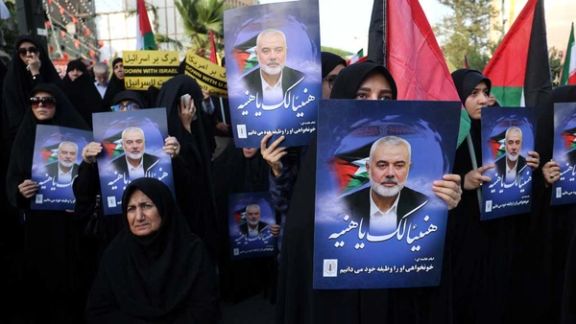
Hamas dismissed an Israeli media report about the details of the assassination of the Iran-backed group's leader Ismail Haniyeh in Tehran.
"The Israeli regime's claim that martyr Haniyeh was assassinated using a bomb at his official residence in Tehran is completely baseless," Hamas said in a statement.
The group added that joint investigations with Iranian security agencies revealed the operation involved a 7.5-kilogram guided missile that directly targeted Haniyeh's mobile phone.
On Saturday, Israel’s Channel 12 reported that an explosive device was planted in advance in Haniyeh's bedroom in the Neshat compound of the Revolutionary Guards, before an air conditioning malfunction almost jeopardized the entire operation.